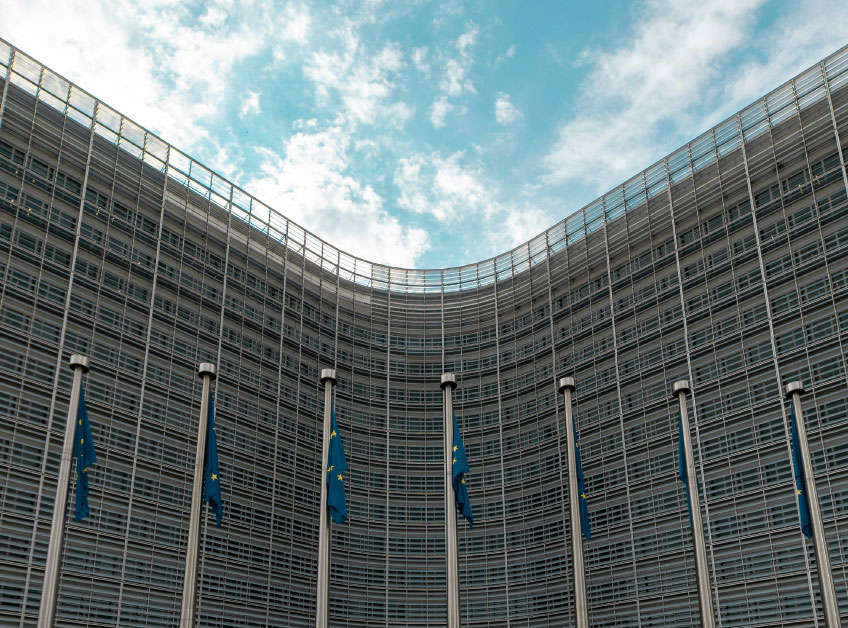Echoes after the EU elections: 5 key sustainability updates to watch

1. Leadership status quo
The recent vote has brought some continuity to the leadership of key institutions. Ursula von der Leyen has been re-elected for a second term as President of the European Commission, signaling at least some potential protection of the Green Deal’s progress. While members of the European Parliament have re-elected Roberta Metsola, a center-right MEP from Malta, as President of the European Parliament.
New faces have surfaced in the European Council, though. With former Portuguese Prime Minister António Costa selected as its next President, and Estonian Prime Minister Kaja Kallas confirmed as the candidate for the EU’s next foreign policy chief by the EU heads of state and government. Nevertheless, these appointments reflect a balanced power dynamic across the traditional political parties: von der Leyen and Metsola represent the center-right (EPP), Costa the center-left (S&D), and Kallas the centrist group (Renew).
The lineup of these top politicians promise at least some continuity for EU policy making, and should ensure that there will be no significant rollbacks on core sustainability policies.
2. “Cordon sanitaire” in the European Parliament
In the European Parliament, leading MEPs have been elected who will drive the work of key parliamentary committees. Notably, after collaboration between mainstream/traditional parties and the Greens, they managed to form a so-called “cordon sanitaire” (the refusal of one or more political parties to cooperate with specific other political parties) against the extreme-right parties. As such, high-ranking positions were secured by established parties, ensuring continuity in the European Parliament’s activities as well.

“Despite that, center-right leaning parties may not welcome her in this position, particularly wary of her stance on climate issues, including a negative position on nuclear energy. ”
Ramona Visenescu – Senior Associate
3. Shaping the future members of the Commission
Once the nominations are in, the process of deciding each national Commissioner candidate’s responsibilities will begin. All EU countries will be jostling to secure one of the heavyweight portfolios for their nominee. Climate will surely be among them, despite recent talk of an ESG backlash, as it remains one of the most politically important and relatively well-funded priorities.
The final selection of Commissioners could shape the direction of EU sustainability policy for the next five years. So far, Teresa Ribera, former Spanish Minister of the Ecological Transition and Social Democrat, has stated that she wants to lead the climate portfolio. Despite that, center-right leaning parties may not welcome her in this position, particularly wary of her stance on climate issues, including a negative position on nuclear energy.
4. “Competitiveness” is the new catchword to define the next five years
“Competitiveness” is set to be the defining theme for the next five years. While green policies remain on the agenda, they will become increasingly interlinked with economic growth. As a case in point, in her political guidelines for her next term, von der Leyen has proposed a Clean Industrial Deal to decarbonize industries and support green technologies. The EU will likely take some pragmatic steps toward achieving climate neutrality by 2050. While the Green Deal remains a cornerstone of the EU’s climate strategy, its integration with economic competitiveness may lead to adjustments in timelines and targets.

“While the Green Deal remains a cornerstone of the EU’s climate strategy, its integration with economic competitiveness may lead to adjustments in timelines and targets. ”
Julia Staunig – Chief Strategy Officer
5. Circular Economy as a key part of Europe’s sustainability strategy
Von der Leyen also proposes a new Circular Economy Act in the new mandate, aimed at fostering a market demand for secondary materials and establishing a single market for waste, particularly in relation to critical raw materials. This initiative is intended to support the transition to more sustainable production and consumption.
Tune in to an on-demand webinar to dig deeper
What does the future hold for EU’s sustainability policies? What are the changes and challenges for key green initiatives, such as CSRD? Join Position Green’s Julia Staunig, Chief Strategy Officer, and guest Alex Braley, Head of Sector (Circular Economy) at SustainablePublicAffairs, as they dissect the recent election results.
Watch free webinar
Julia Staunig
Chief Growth Officer
Position Green


